SUMMARY
This is AI generated summarization, which may have errors. For context, always refer to the full article.
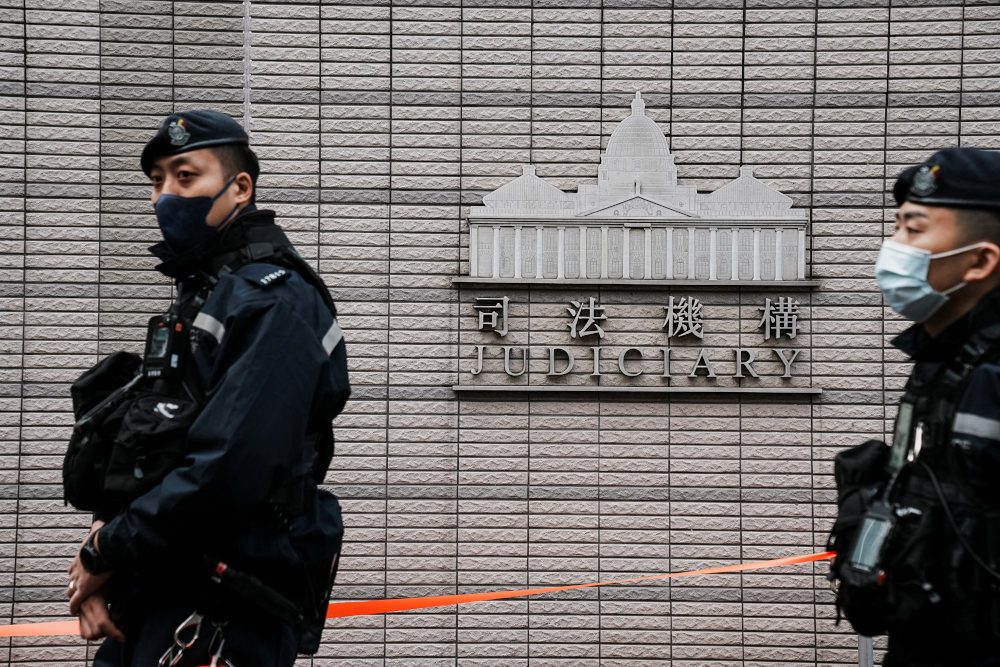
HONG KONG – A landmark national security trial for leading China critic Jimmy Lai opened in Hong Kong on Monday, December 18, amid tight security, with the pro-democracy activist battling charges that he colluded with foreign forces, including the United States.
Queues formed outside the West Kowloon Law Court building the night before, with scores of police deployed. Hong Kong’s security chief warned last week any attempts to disrupt proceedings would not be tolerated.
Lai, the founder of now-shuttered pro-democracy newspaper Apple Daily and one of the most prominent Hong Kong critics of China’s Communist Party leadership, has faced a salvo of litigation under a China-imposed national security law that was enacted in response to a wave of pro-democracy protests in 2019.
The 76-year-old, sporting a crew cut and a grey jacket, appeared calm and thinner than in previous court appearances, smiling and waving to the packed court.
“When fundamental rights are engaged, any protection must be interpreted generously in favor of Mr. Lai and narrowly for the prosecution,” Lai’s lawyer, Robert Pang, told the three high court judges: Esther Toh, Susana D’Almada Remedios, and Alex Lee.
Lai has pleaded not guilty to all charges, which could see him jailed for life.
Lai is already serving a 5-year, 9-month jail term for a fraud conviction over a lease dispute for his newspaper.
Lai was brought to the court building in an armoured prison van. A security cordon was set up around the perimeter with riot police, police vehicles and sniffer dogs.
A lone protester chanting for Lai’s release was fenced off by police about 100 meters (328 feet) from the courtroom.
“The national security law has destroyed the legal foundations of the past,” said the activist, Alexandra Wong, 67, flanked by six uniformed and plainclothes police officers.
Other supporters of Lai lined up overnight in the winter chill to secure a spot in the courtroom.
“Lai has been detained in prison for almost three years now. I want to witness this,” said Jolly Chung, 29. “If he can’t come out and has to die in prison, I hope he can be proud of himself, and many Hong Kongers want to say thank you to him.”
Western democracies, including the United States, Britain, and the European Union, are watching closely, with the trial looming as a fresh diplomatic flashpoint and a key test for Hong Kong’s judicial independence and freedoms under the sweeping national security law imposed by China in 2020.
Britain on Sunday toughened its stance towards the plight of Lai – a British citizen – by explicitly calling on authorities to release him.
The US State Department also condemned Lai’s prosecution and called for him to be freed.
“Actions that stifle press freedom and restrict the free flow of information… have undermined Hong Kong’s democratic institutions and harmed Hong Kong’s reputation,” spokesperson Matthew Miller said in a statement on Sunday.
Hong Kong and Chinese authorities say that the financial hub’s rule of law is robust and that all are treated equally before it. Both Hong Kong and Beijing say the security legislation was needed to restore stability to the former British colony.
Lai and others involved in the trial, including senior journalists at Apple Daily, face a conspiracy to publish seditious publications charge, as well as foreign collusion charges that include allegations they called for the United States to impose sanctions against the Hong Kong and Chinese governments between July 2020 and June 2021.
Lai’s ties with prominent US political figures are also expected to be highlighted during the 80-day trial.
At the start of the trial, Lai’s lawyer sought to limit the timeframe of the prosecution’s sedition conspiracy charge levelled at Lai and senior staffers at the Apple Daily newspaper to just six months, beginning with an article published in the paper on April 1, 2019.
Lai, who China’s foreign ministry recently called a “notorious anti-China element” has been behind bars now for more than 1,000 days. – Rappler.com
Add a comment
How does this make you feel?
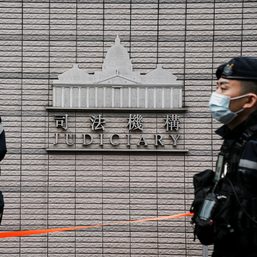

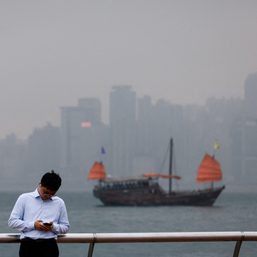
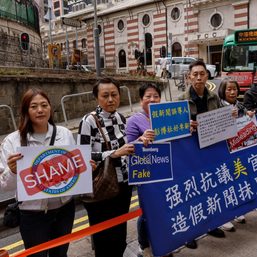
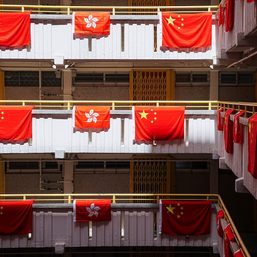
There are no comments yet. Add your comment to start the conversation.